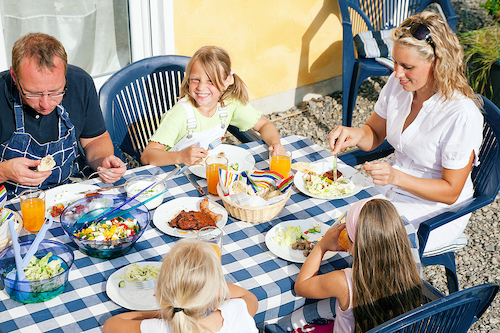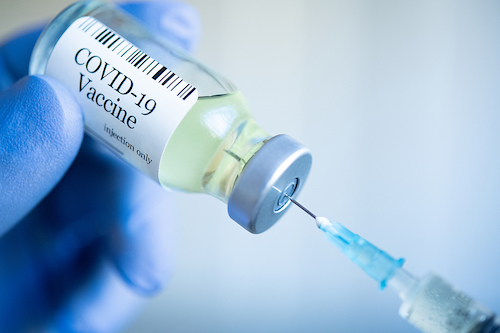November 28, 2024
by Elizabeth Pratt

COVID lockdowns caused many families to eat more meals at home, and it may have had an unexpected benefit.
Research published in the journal Couple and Family Psychology: Research and Practice found that families who ate together more often during the COVID-19 pandemic experienced in increase in quality family time during dinners.
[More]
September 15, 2024
by Elizabeth Pratt

COVID-19 vaccination mitigates adverse effects of SARS-CoV-2 on mental illness.
Research published in JAMA Psychiatry found that the COVID-19 vaccination may help protect against the adverse mental health impacts of the virus by preventing severe infection.
[More]
October 31, 2023
by Elizabeth Pratt

People who bought firearms at the height of the COVID-19 pandemic have higher rates of mental health problems and political extremism.
Research published in PLOS One found those who bought firearms during the pandemic had higher rates of self harm, suicidal thoughts and intimate partner violence when compared with those who don’t own firearms or other firearms owners who bought firearms outside the height of the pandemic.
[More]
October 17, 2023
by Patricia Tomasi

A new study published in the Journal of Emotion looked at whether daily worries about the coronavirus are linked to negative effects experienced during mind-wandering and dreaming. "We investigated whether and how worry about COVID-19 is associated with the emotional quality of daydreaming and nighttime dreaming,” study author Pilleriin Sikka told us. “Many studies have reported increased negativity of dreams and increased number of nightmares during the COVID-19 pandemic. However, most of these studies have used questionnaires and asked about whether people think that their dreams are different during the pandemic as compared to the pre-or post-pandemic periods.”
[More]
August 8, 2023
by Patricia Tomasi

A new study published in the Lancet looked at the effects of COVID-19 on cognitive performance in a community-based cohort. “Many people report ongoing symptoms after COVID-19, including brain fog and problems with concentration, memory and attention,” study author Dr. Rose Penfold told us. “Previous research has shown that some of these people perform worse on cognitive testing. However, most of this research has been done in hospitalized patients who had more severe infection.”
[More]
May 30, 2023
by Elizabeth Pratt

The decision making capability of college students has likely been negatively impacted by the COVID-19 pandemic.
Researchers from Ohio State University found that students had less consistent decision making in the fall semester of 2020 compared with students who had previously participated in the study in previous years.
[More]
March 31, 2023
by Elizabeth Pratt

The number of children and adolescents visiting the emergency department for attempted suicide and suicide ideation rose sharply during the pandemic.
Research publish in The Lancet Psychiatry found that while pediatric emergency department visits decreased overall during the pandemic, suicide related visits among youth rose by 22%.
[More]
February 27, 2023
by Elizabeth Pratt

Enjoying time in nature close to home is associated with a greater sense of wellbeing compared with longer and more intense nature excursions.
Research published in People and Nature found that nearby nature engagement had greater positive outcomes overall compared to experiencing nature second hand through media or through more strenuous excursions in nature.
[More]
November 30, 2022
by Elizabeth Pratt

Psychologists are struggling to meet demand amid a rising mental health crisis.
Results from the American Psychological Association’s 2022 COVID-19 Practitioner Impact Survey show that most practitioners have no openings for new patients and have waitlists that are longer than before the pandemic began.
[More]
August 31, 2022
by Elizabeth Pratt

Having a partner was more beneficial at avoiding loneliness during the first wave of COVID-19 than having children.
Research published in the European Journal of Ageing found that whilst those without children and those without a partner were more likely to be lonely, those without a partner underwent a notable shift in their loneliness in the early stages of the pandemic.
[More]